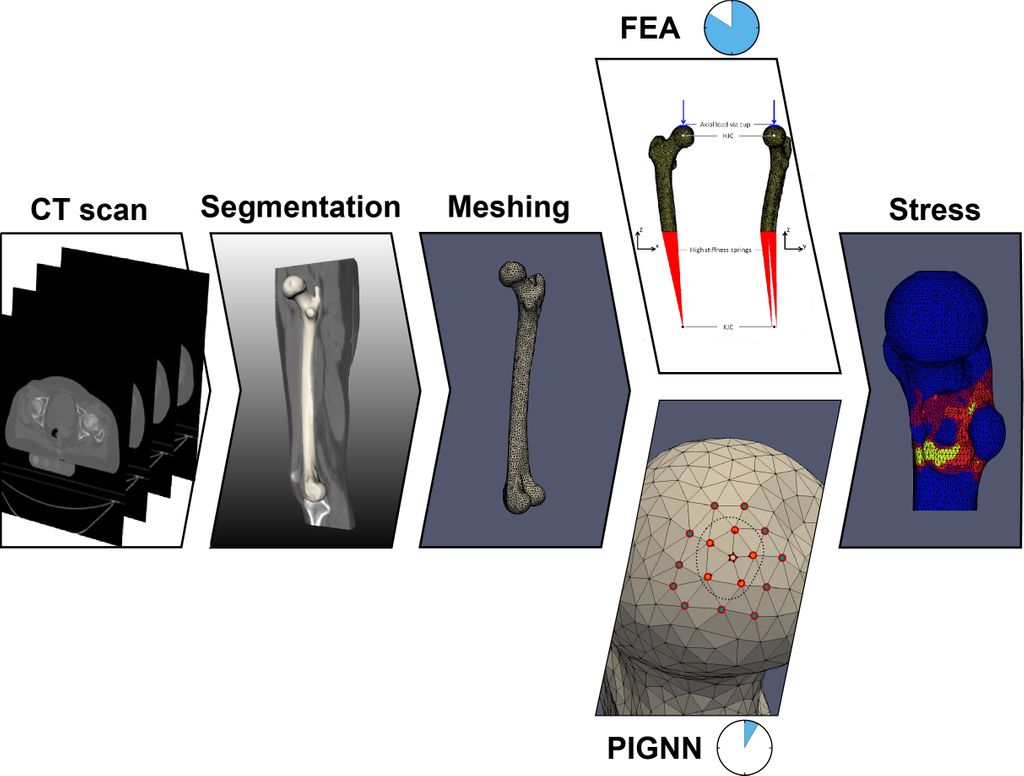Turbo grant for Nikolas Lessmann for accelerating bone metastasis fracture risk assessment
Nikolas Lessmann and Bram van Ginneken of DIAG received a TURBO grant of 80,000 euro for a collaboration project with Jelmer Wolterink and Christoph Brune from the faculty of Applied Mathematics at the University of Twente and Esther Tanck and Dennis Janssen from the Department of Orthopedics of Radboudumc to work on accelerating fracture risk assessment for bone metastases using physics-inspired graph neural networks, for which they came up with the abbreviation PIGNN.
In the Netherlands, more than 25,000 patients suffer from metastases of cancer in their bones every year. Of those, 2,500 have metastases in the femur. The aim of this new research collaboration is to improve the quality of life of patients with advanced bone metastases in the femur. Application of novel graph neural networks will optimize local treatment of individual patients. This will reduce the number of over- and under-treated patients and lead to a higher quality of life as well as lower healthcare costs.

Performing deep learning on graph-structured data representations is one of the most active new research areas in machine learning. In physics-informed versions of graph networks, physical force and stress terms regularize the network and ensure realistic predictions even with limited training data. Application of these methods to medical problems will hopefully become a new line of collaboration between DIAG and the University of Twente.
← Back to overview